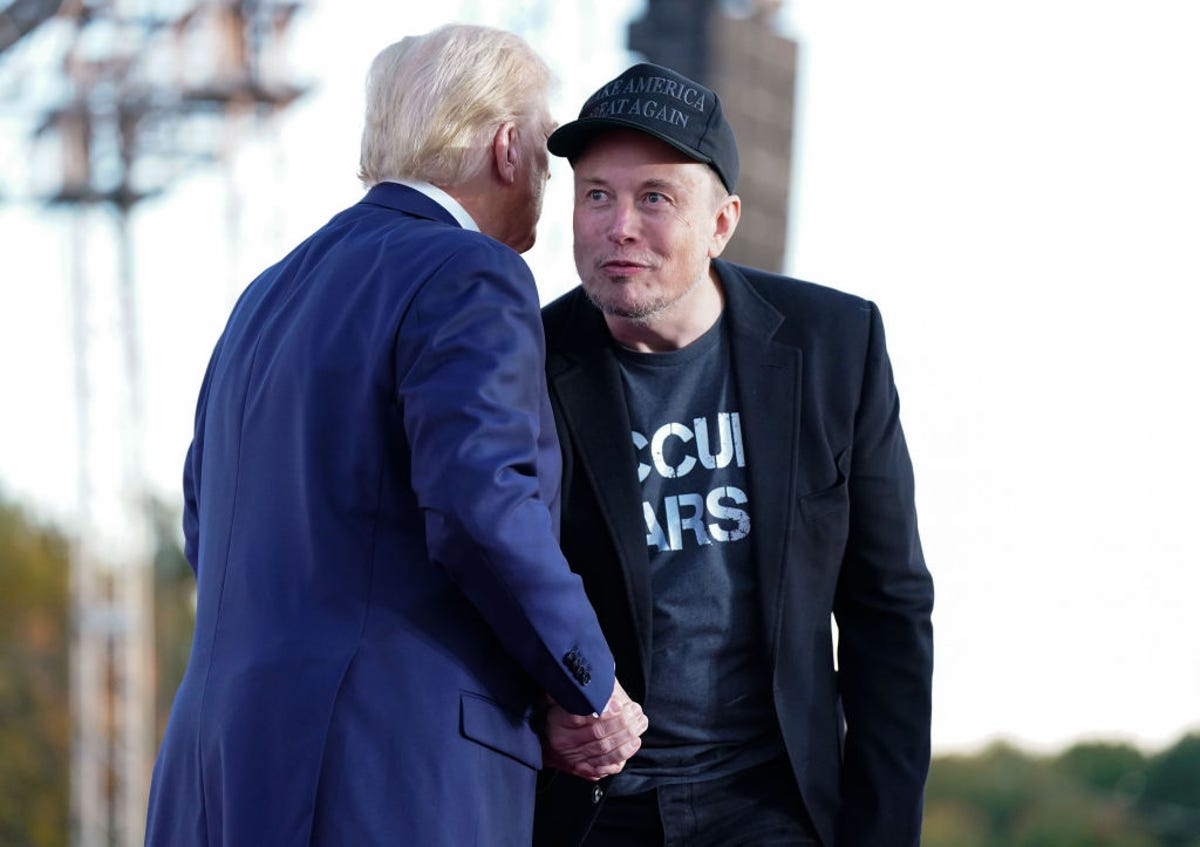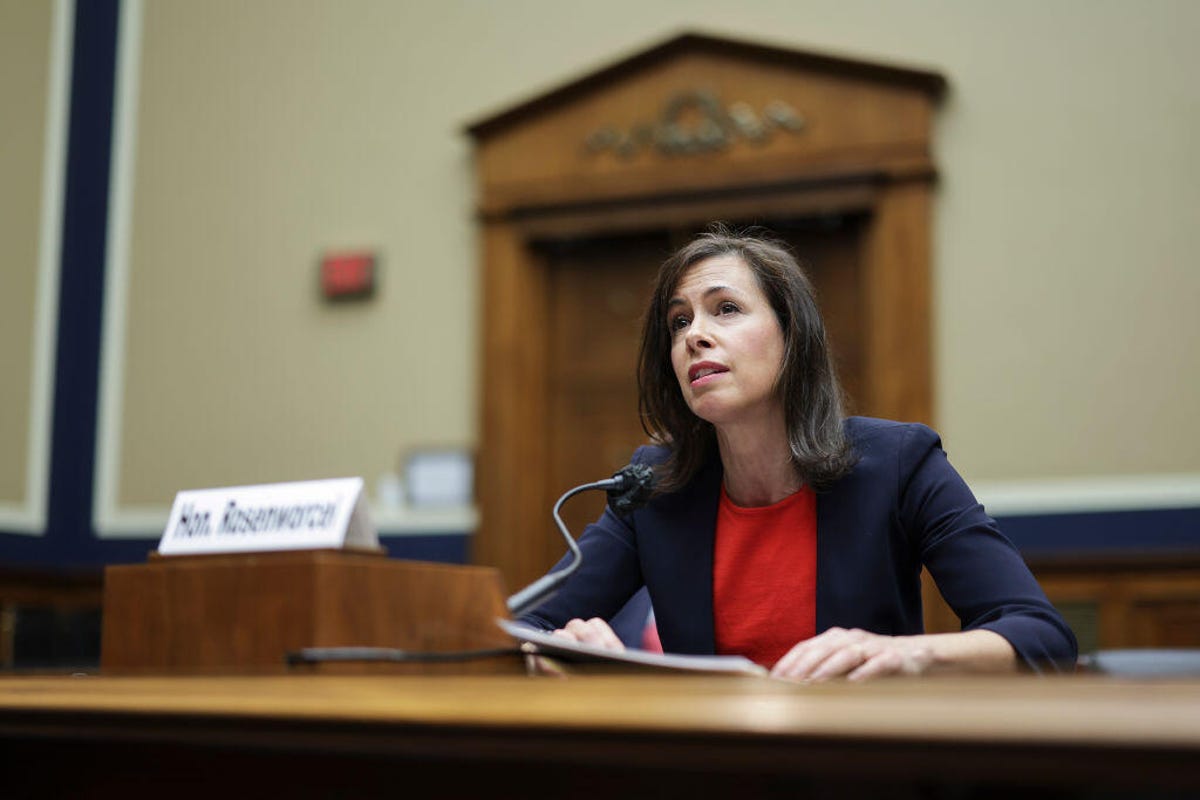How a Republican Election Victory Would Change the Way We Use the Internet




Internet issues haven’t exactly taken center stage in this year’s election cycle, but if you’re online, what happens on Election Day will affect you one way or another.
Internet policy is an issue that touches almost everyone. Whether you’re a rural voter who’s waiting on a high-speed internet connection to make it to your area or one of the 10 million military families that were disconnected from the Affordable Connectivity Program in May, it’s likely that government policy has affected your internet life in one way or another. What’s more, it’s the rare issue that most people actually agree on.
“The good news about broadband policy is that it’s fairly bipartisan,” Blair Levin, a former chief of staff at the Federal Communications Commission and a telecom industry analyst at New Street Research, told CNET. “You’ll very rarely find any individual politician, whether Democrat or Republican, arguing against the benefits that you get from broadband.”
While politicians might be in agreement that high-speed internet is a necessity in 2024, they have different ideas about how to get there and what’s best for the people who use it. To gauge what might change in the coming months, I polled a dozen industry insiders about how internet policy could be impacted by this year’s election.
Read more: Election 2024 Will Be Fair and Secure, Experts Say. Disregard the Noise
Most people I spoke with expected a Harris administration to expand on President Biden’s broadband goals: expand fiber infrastructure to rural areas, support net neutrality rules and back affordability requirements. Unsurprisingly, the experts I spoke with predicted more drastic changes with a Donald Trump victory. Here’s what they had to say.

Elon Musk has spent at least $132 million on Republican candidates this election.
A Republican victory would favor Starlink
Elon Musk has spent at least $132 million to secure the White House and Congress for Republicans. While his satellite internet company, Starlink, represents a fraction of his empire, it’s a “mind-blowingly” profitable fraction, say analysts.
Several broadband policy experts told me that a second Trump administration would be more favorable to Musk. They said Musk would be more likely to receive federal funding and influence policy that would help his satellite company, Starlink.
Another industry source told me that they view Musk’s support of Trump as more about his space business than Starlink from a government subsidy perspective. Regardless of which business he’s prioritizing, it’s a safe bet that the winds will start to blow at Starlink’s back if Trump wins the election.
Musk has had a turbulent history with broadband policymakers until now, calling the FCC “contemptible” on some days and “fair and sensible” on others. What’s undeniable is that Starlink has been a boon for many rural residents with few options for high-speed internet.
“Starlink truly is a game-changer for us rural folks,” said one user on Starlink’s sub-Reddit. “After suffering with dial-up and Viasat for 15 years, it was a godsend.”
Even though it’s had an immediate impact in rural areas, Starlink has mostly been left out of the $90 billion feeding frenzy for broadband money in the wake of the pandemic. Last year, the FCC rejected Starlink’s application for nearly $900 million in the Rural Digital Opportunity Fund, and Starlink has been largely excluded from the $42.5 billion Broadband Equity, Access and Deployment Program — except as a sort of “internet of last resort” in especially hard-to-reach areas.
All of that has left Elon Musk feeling pretty bitter. He blasted BEAD as “an outrageous waste of taxpayer money” and “utterly failing to serve people in need.” BEAD has prioritized the expansion of fiber networks to rural areas at the expense of LEOs like Starlink.
“Fiber can be $10,000 to $30,000 per mile. I can bridge that gap with one Starlink kit, which is $500 bucks,” said SpaceX President Gwynne Shotwell in August.
That might actually be understating it. An often-cited study from the Fiber Broadband Association found that typical fiber construction costs range from $6.49 to $16.25 per foot, roughly $34K to $86K a mile.
But there are a few caveats to Shotwell’s assessment. For one, Starlink hasn’t proven that it has the capacity to connect millions of additional households.
“Starlink can correctly claim that it covers a broad area, but spectrum constraints mean that Starlink cannot serve all the locations in that area,” Levin wrote in a recent note to investors.
Starlink isn’t connecting people at the FCC’s definition of broadband, either — 100Mbps download and 20Mbps upload speed. The most recent data from Ookla — albeit a year old — shows that Starlink users are getting 65/10Mbps on average. (Ookla is owned by the same parent company as CNET, Ziff Davis.)
“Are we going to allow these extreme high-cost areas to get stuck with Starlink while others are gradually rolling out fiber through BEAD funding?” Christopher Ali, professor of telecommunications at Penn State University, told CNET. “It’s good enough today, but it won’t be good enough tomorrow, right? We’re not sure how well Starlink can scale.”
So far, agencies have taken this position when doling out BEAD funding: fiber first, Starlink (and other LEOs) as a last resort. But that could change with a Republican victory.
Musk has brushed off the speed and capacity concerns, saying earlier this month that “small-but-meaningful updates” will get Starlink to 1,000Mbps speeds — if it can just get FCC approval.
But that could change with a Republican victory, which Musk has put all his chips in for. He could exercise his influence on broadband policy in several ways. The FCC controls how companies like Starlink can use radio frequencies, or spectrum — the kind Starlink would need to reach those 1,000Mbps speeds — as well as how many satellites it can launch into space.
“If you look at Musk’s various efforts to improve his spectrum position, whatever his batting average is, it’s not hot,” Levin told CNET. “It’s going to be a lot higher if Trump wins. And that’s a very significant win.”
Musk could also agitate for a Republic administration to end programs that subsidize his competitors, like the Universal Service Fund, which supports broadband deployment to rural areas, public institutions and low-income Americans. The USF includes the RDOF — the same one that rejected Starlink’s $900 million application last year.
“Think about the final 8% of the homes that don’t have what we think of as a broadband service — that is the easiest addressable market for Starlink,” Levin told CNET. “Would Starlink be better off getting a small percentage of government funding or having no government funding for those areas? It’s pretty obvious to me they’re better off with none.”
The USF has an annual budget of around $9 billion, none of which has gone to Starlink.
“I doubt that Elon Musk or his people will say, we want to kill USF. That’s not going to happen. But USF has both economic and legal problems, and if you don’t solve them, it eventually falls apart,” Levin said.
Trump has said he would tap Musk to lead his new “government efficiency commission” if elected. Experts say that Musk’s influence would be felt in the selection of a new FCC chair, too.
In Project 2025, a collection of conservative policy goals for the next administration, Republican FCC Commissioner Brendan Carr criticized wasteful broadband policies and threw his support behind Starlink, arguing that “the FCC should expedite its work to support this new technology by acting more quickly in its review and approval of applications to launch new satellites.” (For his part, Trump said of Project 2025 at the September debate, “I haven’t read it. I don’t want to read it.”)
“Carr is the front-runner for Trump, but he is not certain to win it. What is certain is that Musk will have a veto over the selection,” Levin said.
“Carr has been very vocal about his dissent with respect to the FCC treatment of Starlink, especially when they denied RDOF funds,” Joel Thayer, president of the Digital Progress Institute, told CNET. “Whether Elon Musk gives praise or not, Republicans have always been a little bit more open to this tech-neutral approach.”

FCC Chair Jessica Rosenworcel.
An FCC shakeup could kill net neutrality
Net neutrality rules require that internet providers treat all internet traffic equally, outlawing practices like traffic throttling or paying for content to be prioritized. The experts I spoke with predicted that a Trump administration would abandon net neutrality regulations.
“I can see a Republican FCC really backing away from a lot of these fights,” Thayer told CNET. “They don’t want to win net neutrality.”
Right now, the issue of net neutrality is unresolved after ping-ponging back and forth with every administration for a decade. These rules were first established in 2015 by the Obama administration, then repealed in 2017 under Trump, then reinstated again in April this year.
But then something happened that jolted the system out of this back-and-forth: the Supreme Court struck down the decades-old Chevron deference, which limits the FCC’s power in ambiguous territory like net neutrality. The effect was almost immediate. A month later, the Ohio Sixth Circuit Court of Appeals delayed the reintroduction of the FCC’s net neutrality rules, putting the issue in judicial limbo.
“Chevron is changing everything, and this is something that I’m going to be really attentive to, particularly at the level of the FCC,” Thayer said. “It’s how much a new administration will go to bat for the FCC, and I put that more on a Harris administration than a Trump administration, just judging by the comments of Republican commissioners.”
The wide-reaching effects of the Supreme Court decision are still playing out. The Biden administration said it produced a “convulsive shock” to the legal system. The industry experts I spoke with said that all eyes are on the courts but that a new administration could have an impact.
“Regardless of the election results, the Supreme Court could decide that the FCC does not have the authority to impose the sort of network neutrality rules that have always applied to phone networks,” said Calabrese.
“If the Court rules against the FCC, Congress will need to resolve the question. If Trump wins and the Court upholds the FCC’s authority, the regulatory ping pong will likely resume, with the new Republican majority at the FCC repealing the rules, much as they did during Trump’s first term.”
Carr, the likely pick for FCC Commissioner if Trump wins, didn’t address net neutrality specifically in his Project 2025 writing, but he opposed reinstating the rules last year, arguing they would increase rates and slow down rural broadband builds.

BEAD has prioritized expanding fiber internet to rural areas.
BEAD projects could be delayed or sped up — depending on who you ask
Republicans would either clear away bureaucratic red tape on the largest broadband infrastructure investment or meddle with a massively complex project that’s already well under way. It depends on who you ask.
Of the $90 billion allocated in 2021 to broadband projects, $42.5 billion went to the BEAD Program to expand infrastructure across the country. Three years later, the program has been heavily criticized by Republicans for how long it’s taking, as well as its mandate to offer a low-cost plan with a goal of $30 monthly.
In a Wall Street Journal op-ed published in mid-October, Carr slammed BEAD for its “diversity, equity and inclusion requirements, climate-change rules, price controls, preferences for union labor, and schemes that favor government-run networks.”
Former Senate Commerce Chair Roger Wicker predicted that a second Trump administration will “be in a much better position to remove these extraneous constraints” on BEAD that the NTIA “added without statutory authorization.” Senator Ted Cruz also added that Republicans would “consider every option” to address BEAD’s shortcomings if they win a majority in Congress.
Cruz hasn’t outlined specific steps for how he would do this, but last year, he called on states to return unused BEAD money if they already have sufficient funding from other federal broadband programs.
But at this point, the cat may be out of the bag when it comes to making changes to BEAD.
“We’re talking about a multi-billion dollar program that a lot of people have spent countless hours on. So turning a ship like that isn’t going to be easy,” said Thayer.
Speaking in a recent podcast, Alan Davidson, who heads the National Telecommunications and Information Administration, the organization responsible for overseeing BEAD, dismissed Republicans’ criticism as “election-year politics.”
“I’m not that concerned about the future of this program,” said Davidson. “I’m optimistic that it will continue in this form because it’s the right way to do it. It’s the right answer for making sure that everybody in America gets connected.”
Still, experts I spoke with suggested that BEAD projects could also be in jeopardy because of changes to the NTIA. One source who spoke on condition of anonymity said that they’d expect the NTIA to be massively downsized with a Republican victory.
In his Project 2025 section, Carr described the NTIA as suffering from “organizational malaise” and requiring “energetic leadership by political appointees.”
This echoes an executive order made by Trump late in his presidency known as Schedule F, which stripped federal employees of protections and allowed them to be fired for political reasons. Schedule F was canceled in the early days of the Biden presidency but could be reinstated with a Trump win. That could have a huge impact on the NTIA — and by extension, BEAD.
“If Trump does what he has said about Schedule F, and you replace lots of civil servants with a lot of political loyalists, there could be enormous delays in the BEAD projects because a lot of the people actually administering it at the NTIA are civil servants,” Levin explained.
The bottom line
In election season, it’s hard to think of many issues that are actually bipartisan. But the internet is one thing most of us actually agree on, with a vast majority of voters supporting federal investment to close the digital divide. And even though it’s far down on the list of priorities for most people, this election will impact all of our internet lives in one way or another.




